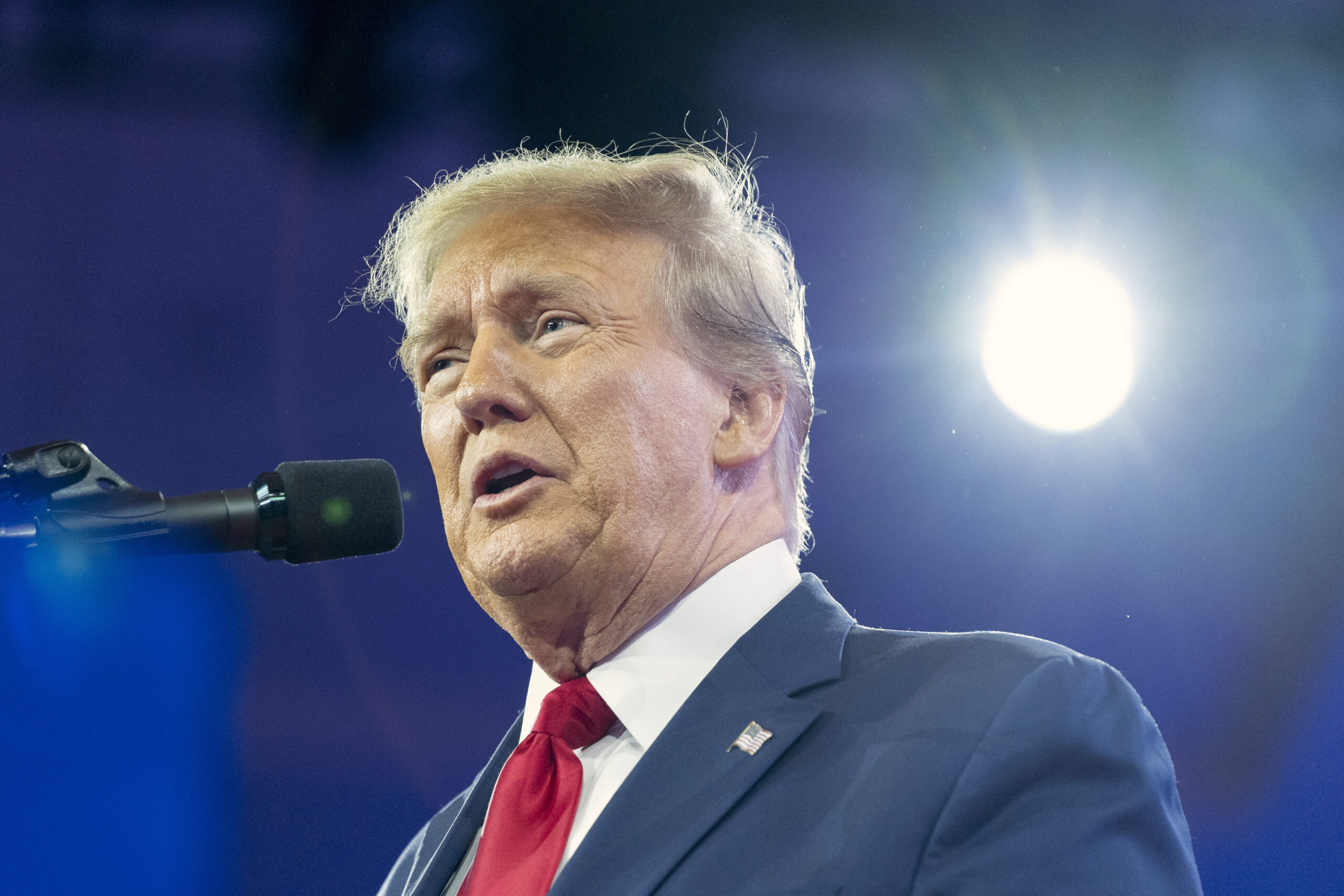

Former President Donald Trump is in the throes of his now-uncontested campaign for the Republican presidential nomination while at the same time juggling criminal and civil litigation against him.
Trump is facing enormous costs of legal bills and penalties, the prospect of trials tying him up during valuable campaign days, and the possibility of being convicted, which could affect the public’s perception of him right as he is working to win their vote and could eventually result in jail sentences.
Trump, in all, is facing 91 criminal charges that carry a total maximum sentence of more than 700 years in jail, though he is unlikely to be penalized to that extent based on sentencing standards. He has pleaded not guilty to all of the charges.
Below is a look at what lies ahead for Trump in seven of his legal cases.
Jan. 6 case
The criminal case brought by special counsel Jack Smith in Washington, D.C., is paused while the Supreme Court weighs Trump’s argument that he is protected by presidential immunity for allegedly illegally attempting to overturn the 2020 election before he left office. Smith has charged him with four felonies in the case.
The special counsel has acted with urgency to move the proceedings along, pleading with the Supreme Court to rule quickly and noting in filings that he is seeking a “prompt resumption” of the case.
The Supreme Court will hear oral arguments about Trump’s immunity claim on April 25. Many legal experts expect the high court to issue a decision in May or June. If the justices decide in Trump’s favor, the case will be dismissed. If they do not, the case immediately resumes at the district court level in Washington.
There, Judge Tanya Chutkan will likely provide a few months of pre-trial activity, setting up a potential trial date for late summer or early fall. Smith and Trump have signaled through their filings that the trial could last two or three months, meaning a conviction would not necessarily come before Election Day on Nov. 5. Trump, should he win the election, could also make an unprecedented attempt to pardon himself of charges when he takes office.
Jonathan Turley, a law professor at George Washington University, warned a conviction ahead of Election Day could shift the race in Biden’s favor, and he argued that was the underlying reason for Smith’s urgency.
“This is an election that will be won on the margins. Even one criminal conviction could bleed away the margin for victory in a razor-thin election,” Turley said. “Special counsel Jack Smith is making the impact on the election a driving force in his prosecution. He has relentlessly pushed for a trial before the election as the overriding priority in trial and appellate filings.”
Classified documents case
The criminal case brought by Smith in Florida is still in its pretrial phase. Trump faces 40 felony counts over allegations he willfully retained national defense information and obstructed the federal investigation into him. Judge Aileen Cannon has not settled on a trial date, but her decision could come at any moment because she heard arguments from both parties last week over when the trial should begin. Smith has asked for a July trial date. Trump is aiming to push the trial out past the election, but when pressed on coming up with a second option, he proposed this coming August.
The preparation for the trial has been a drawn-out process because it involves what Cannon has described as an “unusually high volume” of discovery that includes classified material.
Trump’s attorney, according to a report from the hearing last week, estimated the trial could take roughly five weeks. Like in the Jan. 6 case, any trial start date could be disrupted by pretrial appeals. Also similar to the Jan. 6 case is the possibility that Trump could attempt to pardon himself if he wins the election.
Hush-money case
This trial is set to begin in the New York State Supreme Court on March 25, and Judge Juan Merchan will oversee the proceedings. Trump appeared at a few hearings before the trial, but his presence will be required every day at this trial, which will take place four days per week and is expected to last several weeks.
Bragg has charged Trump with 34 low-level felonies over allegations he illegally used campaign funds in 2016 to silence porn star Stormy Daniels.
Critics have argued Bragg’s case is the weakest of the four criminal cases Trump is facing. They point to how the Department of Justice never pursued charges against Trump despite investigating and prosecuting Trump attorney Michael Cohen over the same matter.
But some legal experts have begun to express confidence in the charges. Karen Agnifilo, a New York-based attorney who worked in top positions in the Manhattan District Attorney’s Office for more than a decade, said Bragg’s case is actually a “run-of-the-mill, routine case for the Manhattan DA’s office.” Legal analyst Norm Eisen, who served as special counsel for congressional Democrats during Trump’s first impeachment, predicted the case is “very likely to result in 34 felony convictions.”
Georgia election interference case
The racketeering case brought by Fulton County District Attorney Fani Willis took a stunning turn in January when a co-defendant revealed that Willis had engaged in an undisclosed romantic relationship with a prosecutor she hired to help with the case.
Willis had been well on her way to a trial against the former president and 18 co-defendants. She secured guilty pleas from four of them and had asked the judge for a late summer trial.
Now, Willis has instead found herself waiting for Judge Scott McAfee to determine whether her relationship resulted in a conflict of interest that tainted the case to the point that she should be disqualified from it.
McAfee said Friday he will make a decision on the matter within two weeks. If he disqualifies her, some legal analysts have said it would permanently derail the case. If he rules in Willis’s favor, the schedule for the prosecution has now been delayed by nearly two months and could push a potential trial back to beyond November.
Civil fraud and E. Jean Carroll cases
Both of these cases have concluded, but Trump is now involved in arguments about when and how he will pay penalties from them.
Judge Arthur Engoron awarded New York Attorney General Letitia James, an elected Democrat, a massive $350 million in damages after Engoron found in a nonjury trial last month that Trump, his two adult sons, and his company had committed business fraud by overstating Trump’s wealth for years. Trump has appealed the verdict, but in the meantime, Trump is obligated to pay the damages plus interest, which totals to $454 million. The sum is also accruing an additional daily interest. Forbes estimated that Trump has about $413 million in cash but that his overall net worth is more than $2 billion, meaning Trump could sell some of his assets to afford the bill.
Separately, Judge Lewis Kaplan awarded former Elle magazine columnist E. Jean Carroll $83 million in a defamation case. A jury found Trump liable for sexually abusing Carroll in the 1990s, and Kaplan found that Trump defamed her for remarks he made about Carroll during his denials of the allegation. Trump has until next week to pay that amount, but in the meantime, he has filed a request in federal court for a new trial and asked Kaplan for more time to make the payment. Kaplan has not yet ruled on Trump’s requests.
14th Amendment case
The Supreme Court ruled on Monday that states do not have the constitutional right to remove Trump from presidential primary ballots in response to Colorado cutting Trump from its ballots. The decision overrode the decision of the Colorado Supreme Court, which found that Trump’s actions on Jan. 6, 2021, violated the 14th Amendment and that he was therefore ineligible to run for president.
CLICK HERE TO READ MORE FROM THE WASHINGTON EXAMINER
The Supreme Court’s decision effectively shut down other states’ attempts to follow Colorado’s suit, but the high court left open the ability for Congress to act on the matter instead.
This led to Rep. Jamie Raskin (D-MD) vowing to introduce legislation to ban anyone who “[engaged] in insurrection” from serving in federal office. Passing such legislation in a divided government is unlikely, but Democrats could put forth their legislation quickly once the new Congress begins in early January 2025 if Democrats win control of both chambers. Legislation aside, Trump’s detractors have also floated the idea of congressional Democrats doing what they aggressively criticized Republicans for doing in January 2021: voting against certifying the 2024 election results.





